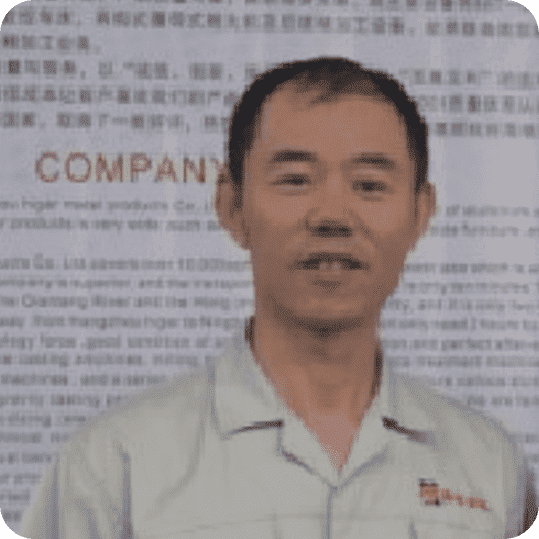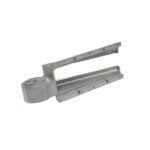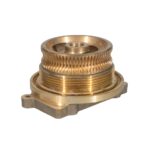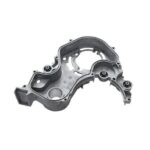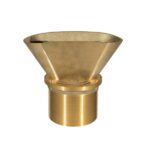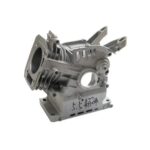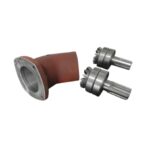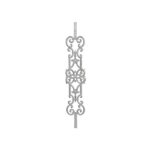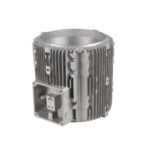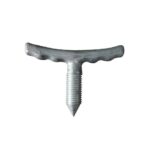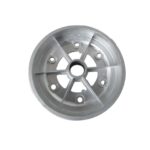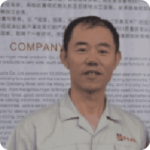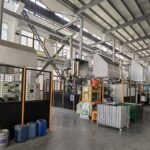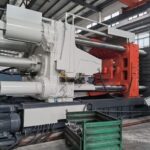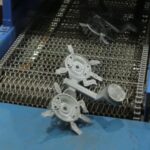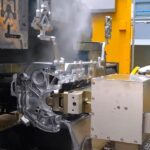Why Medical Buyers Are Choosing Aluminum Die Castings
More and more medical device manufacturers are turning to aluminum die casting for enclosures and structural housings. Over the last two decades, we’ve seen steady growth in this trend—not just because aluminum is lightweight, but because it meets strict quality and performance needs.
While stainless steel and plastics still have their place, aluminum die-cast housings now strike the right balance between durability, cost, heat resistance, and precision—all critical in healthcare environments.
What Makes Aluminum Ideal for Medical Device Housings?
As a die casting supplier with over 20 years of experience, we’ve handled a wide range of aluminum grades for different industries. In the medical field, the balance of hygiene, strength, and weight is particularly important. Aluminum naturally resists corrosion, can be finished to medical-grade standards, and supports tight tolerances.
Key benefits of aluminum for medical housings:
- Lightweight: reduces total device weight, important for portability.
- Non-magnetic: suitable for MRI-compatible components.
- Corrosion-resistant: especially with anodizing or powder coating.
- High thermal conductivity: ideal for electronics cooling in diagnostic devices.
- Supports fine details and thin walls: enabling compact designs.
We typically use ADC12 or A380 for most housings. Both can achieve ±0.05 mm tolerance in CNC-finished surfaces and offer stable dimensional control across thousands of parts.
What Kinds of Medical Devices Use Aluminum Die Casting?
Not every medical part is a good fit for die casting—but when it comes to outer housings and mechanical structures, aluminum performs exceptionally well. We’ve supplied components for both OEMs and contract manufacturers making everything from hospital beds to high-end diagnostic tools.
Common medical applications we’ve worked with:
- Diagnostic equipment enclosures (e.g. CT, ultrasound systems)
- Monitor frames and instrument control panels
- Medical pump housings
- Emergency portable unit shells
- Wheelchair power drive casings
- Lab analyzer parts (centrifuge, etc.)
In most of these cases, the buyer was initially using a mix of machined aluminum and plastic—but moved to die casting for volume savings and better structural consistency.
Tolerances and Surface Requirements We Typically Meet
We understand that medical buyers often require precision and aesthetics together. In our experience, the surface finish, internal quality, and machining specs must align with end-use expectations—especially for products that are patient-facing.
Here’s what we usually deliver for medical projects:
| Requirement | Yongzhu Casting Capability |
|---|---|
| Casting tolerance | ±0.10 mm (as-cast), ±0.05 mm (CNC) |
| Common alloy | ADC12 (JIS), A380 (US spec) |
| Surface roughness | Ra 1.6 μm post-machining |
| Finish options | Powder coating, anodizing, shot blast |
| MOQ | 500 pcs for medical-grade housings |
| Max mold cavity life | 80,000 shots (depending on part size) |
Buyers often ask about long-term mold quality and the repeatability of complex features. With proper mold maintenance and process control, we’ve consistently supplied repeat batches over 5+ years with no major dimensional drift.
How Do Medical Standards Affect Die Casting Production?
Most medical buyers care about ISO standards, cleanliness, traceability, and post-processing documentation. While die casting itself isn’t “certified medical grade,” what matters is how the parts are processed and cleaned afterward. We follow buyer-required documentation protocols closely.
What we support in medical projects:
- ISO 9001:2015 factory certification
- Material batch traceability
- Mold design records and 2D/3D drawing alignment
- Cleaning and degreasing of parts
- Secondary machining with FAI and CMM reports
- Basic RoHS compliance (for coatings and alloys)
We work with the buyer’s QA department from the beginning to avoid revisions late in the process. It’s not just about casting the part—it’s about delivering a housing that integrates well with the electronics, labels, and accessories inside the device.
Real Customer Case: Portable Defibrillator Housing Project
One of our long-term clients in Europe contacted us for a housing project used in portable defibrillators. They were facing issues with their previous vendor who supplied machined aluminum shells at high cost and long lead times. Their forecast was 3,000 units/year.
We proposed a switch to ADC12 die casting with post-machining, a snap-fit corner design, and integrated heat dissipation ribs. After 2 months of DFM and mold development, our pilot batch achieved the required tight tolerances (±0.05 mm) on battery compartment and mounting bosses. Surface finish was powder-coated matte silver with laser marking zones.
Outcome:
- Unit cost dropped by 38%
- Assembly time reduced by 25%
- Batch-to-batch consistency improved drastically
This project has now run for 4 years with stable reorders.
Is Die Casting Always the Best Option for Medical Projects?
We’re honest when a project isn’t right for die casting. Some extremely low-volume or oversized medical equipment housings may still be better suited for machining or sheet metal. But for parts between 500–100,000 pcs/year, aluminum die casting almost always delivers better economics and repeatability.
Ask yourself:
- Does the part need high strength with low weight?
- Does it require integration of complex mounting features?
- Do aesthetics and surface uniformity matter?
- Is long-term repeat production important?
If most answers are yes, then die casting deserves serious consideration.
Searching for High-Quality for Cast Aluminum Parts?
You’ve come to the right place! Yongzhu Casting is a certified die casting manufacturer with over 20 years of expertise in the industry.
We have successfully completed numerous die casting projects for Aluminum casting parts, particularly in your industry.

Zhejiang Yongzhu Casting Technology Co., Ltd.
Location: Zhejiang, China
Company type: Manufacturers, Producers, Wholesalers
Year Founded: 2004
Main Products: Aluminium die casting, Mold Making, Die Casting, Sand Casting, Gravity Casting
Leading Chinese producer Yongzhu Casting is formerly known as Hangzhou Higer Metal Products Co., Ltd., was established in 2004.
With 20 years of experience in the industry, we are a specialized manufacturer in Aluminum casting and Machining.
Our products are widely used in various applications such as Automotive, Energy, Lighting, Medical, Home Furnishings, Machinery & Equipment etc. Below are our advantages:
Design Review & DFM Support
Our professionals will evaluate your designs and provide suggestions for cost savings. Additionally, we offer Design for Manufacturing (DFM) assistance and conduct mold flow analyses to facilitate efficient production.
State-of-the-Art Manufacturing Equipment
Our facility is equipped with advanced hot-chamber and cold-chamber die casting machinery for aluminum and zinc production.
We also utilize high-precision CNC machines in a temperature-controlled workshop, featuring 3-Axis, 4-Axis and 5-Axis setups to manage any project you have.
Rigorous Quality Control Measures
Our dedicated quality control team ensures that all parts meet the highest standards of quality and consistency. We employ high-accuracy measurement instruments, including CMM, spectrometers, and X-ray detectors.
Comprehensive Surface Treatment Options
We provide a variety of surface finishing techniques for your precision die casting components. Our in-house services include cleaning, polishing, anodizing, shot blasting, and painting.
Flexible Project Acceptance
While larger manufacturers often shy away from low-volume projects, and smaller ones may struggle with quality, Yongzhu Casting stands apart. We prioritize customer satisfaction and willingly accept high-mix, low-volume projects like yours.

